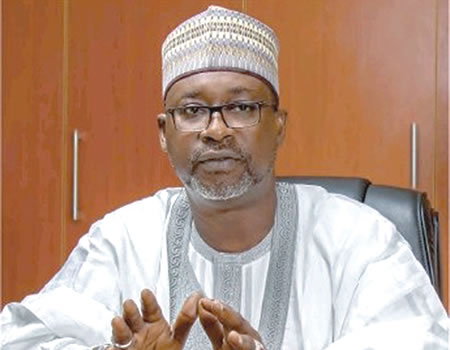The Minister of Water Resources, Mr Suleiman Adamu, has said that Nigerians are being misinformed about the Water Resources Control Bill.
The minister made the statement while interfacing with the House of Representatives Committee on Water Resources in Abuja, following the public outcry that trailed the passage of the bill.
The News Agency of Nigeria, (NAN) recalls that sequel to a motion of personal explanation by Rep. Benjamin Mzondu (PDP-Benue) the house withdrew the bill which had already been passed on the grounds that it was not gazetted.
The minister recalled that the bill was presented in the 8th Assembly and there was a two-day public hearing with Rep. Aliyu Ahman-Pategi as chairman.
According to him, there was no issue at all until some unpatriotic Nigerians gave bad and dangerous coloration, and tried to incite the people against all the good things in the bill.
The minister said that the claim that the bill when passed into law would centralize the control of water bodies across the country was not true.
“It is the most unfortunate, the most painful aspect of all this issue, that people were being misled about this bill; fabrications about things that are not there.
“And because there are people that are gullible, they have taken it, and to the extent that it almost even became a security issue.
READ ALSO: Bill to Improve Accountability in Governance Initiated By Lagos State Assembly
“I don’t think these people have done a good service to the country; it is a disservice,” he said.
Adamu said that with the unfortunate campaign of calumny on the bill, the country stood to lose all those benefits of the bill.
He said that consultations were ongoing to educate stakeholders and the general public on the need to control the water resources of the country.
“When I hear people say ‘throw away that bill’, I say, if only they knew; if only you knew what is going on.
“We have even had a meeting with the Nigeria Governors’ Forum and their attorneys-general are looking at it.
“So, we are doing quite a lot and we will continue to do more, and this is part of the process and I am also ready to meet individual members.
“I know that community pressure is too much and it can influence the way you take decisions, but I also know that you will take decisions that are in the best interest of this country, no matter what,” he said.
Adamu said that an Ijaw youth organization was threatening fire and brimstone without knowing that the Water Resources Act 2004 and the bill protect the extreme downstream communities the most.
According to him, if things are happening and the waters from River Niger and River Benue are being truncated or damaged or diverted, the Niger Delta will not exist.
“All the freshwater is flowing – River Niger is flowing from Kebbi State, River Benue flows in from Adamawa State, River Kaduna and many other tributaries from the Jos Plateau and Mambilla – and going all the way and emptying into the Atlantic Ocean.
“If states are allowed and it is an all-comers affair or business, how can you prevent pollution and protect diversion of the water at the expense of downstream users,” he said.
Rep. Jatau Muhammed (PDP-Bauchi) said that the idea to withdraw the bill following the outcry was that of the majority which always carries the vote.
According to him, there is no way you can bring a bill, no matter how good it is, and expect a 100 per cent acceptance by the community you are presenting it to.
The lawmaker said that the National Assembly was not an exemption emphasizing that the right information was always very important.
Rep. Blessing Onuh (APGA-Benue) said that there was a need to lecture lawmakers on the benefits of the bill.
“The truth is that not all of us here are in support of that bill, including me, because I want to know why, and that is because I am from Benue and I am not convinced.
“My people say they do not want it, I do not know how to really convince them. So, it is left for your ministry to organise something like a proper seminar,” she said.
Speaking on the benefits of the bill, the Chairman of the Committee, Rep. Sada Soli (APC-Jigawa) said that at the level of the states, there were no laws regulating operations of water boards.
He said that the bill is aimed at creating a legal framework which will protect the interests of states and local governments.
“Remember that the states are members of the National Water Council, all the states which are part and parcel of this legislation.
“In fact, as we move on, they are the ones that will sit down, propose amendments that will be sent to the council and the Executive will send it to us here; so, it is purely in the control of the states,” he said.

